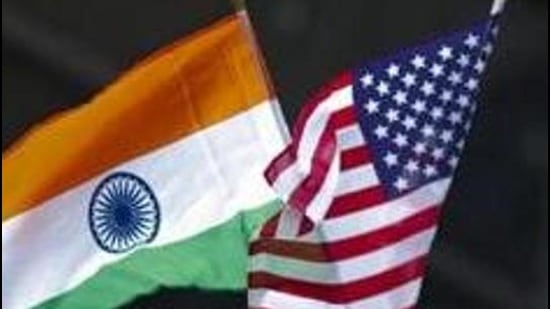US planned to back India in addressing issues like border dispute with China: Document
The US planned to “offer support to India through diplomatic, military and intelligence channels,” ABC News reported, citing the newly declassified US national security document
Two years before the military standoff on the Line of Actual Control (LAC), the US framed a strategy for the Indo-Pacific that envisaged offering diplomatic and military support to India to address challenges such as the border dispute with China, according to a newly declassified US national security document.

In early 2018, US President Donald Trump endorsed the strategy developed by the National Security Council throughout 2017. A national security briefing prepared by the White House, which was classified “secret” and “not for foreign nationals”, was declassified last week and will be released on Wednesday. Australia’s public service broadcaster ABC News obtained the document on Tuesday.
The US planned to “offer support to India through diplomatic, military and intelligence channels — to help address continental challenges such as the border dispute with China”, ABC News reported, citing the document.
The US objective is to “accelerate India’s rise and capacity to serve as a net provider of security” by building “a stronger foundation for defense cooperation and interoperability; expand our defense trade and ability to transfer defense technology”.
Also read | India-China ties ‘profoundly disturbed’ by first act of bloodshed in 45 years: Jaishankar
The document also referred to the need to “align our [US] Indo-Pacific strategy with those of Australia, India and Japan”, of deepening the US’s cooperation with Japan and Australia, and a quadrilateral security relationship with India.
Over the past three years, the US has signed three key defence agreements, one at each of the 2+2 ministerial meetings, to facilitate the real-time sharing of sensitive military information and transfer of sophisticated technology. These agreements are the Communications Compatibility and Security Agreement (COMCASA), the Industrial Security Annex to the General Security of Military Information Agreement, and the Basic Exchange and Cooperation Agreement (BECA).
In a recent farewell address, outgoing US ambassador Kenneth Juster had specifically referred to these agreements and said concluding them had elevated the bilateral defence partnership.
During the same event, Juster had said the US was “very supportive” amid the India-China border standoff but declined to go into details. “We both share a vision of the Indo-Pacific region...and that is an inclusive vision that provides opportunities for all countries to grow and prosper but also wants to avoid incursions of any type, intimidations and predatory financing, and when there’s a situation that is along those lines, we cooperate to try to resist it,” he had said.
The four members of the Quadrilateral Security Dialogue or Quad – India, Australia, Japan and the US – elevated the body to the ministerial level in 2019 and the second ministerial meeting was held in Tokyo last year. Ahead of that meeting, US secretary of state Mike Pompeo had spoken about plans to formalise the Quad.
The US national security document was declassified 30 years earlier than normal and experts said the move was apparently aimed at signalling continuity in American policy for the Indo-Pacific amid the change in government in Washington.





